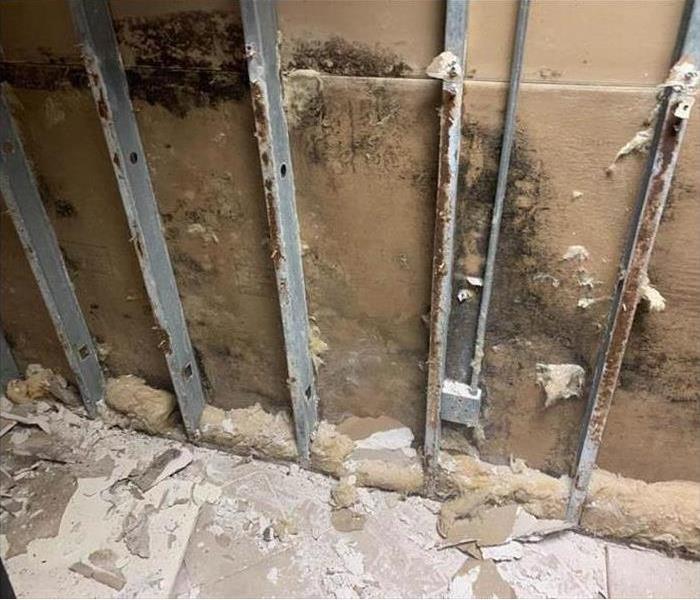Is Black Mold Grounds To Sue a Commercial Landlord?
3/19/2022 (Permalink)
As a commercial business owner, the last thing you want is black mold destroying your property. If you rent, your building landlord may be responsible for this costly issue. Find out if you have grounds to sue upon finding mold invading your commercial space.
First Steps When Mold Overgrowth Is Suspected
Black mold can often go undetected. Therefore, if you notice any signs at all, it's best to contact your landlord immediately. Ask to have professional mold remediation experts brought into the site. This will establish a paper trail, providing evidence that you have reported the issue. Landlords are legally required to remove the mold and provide compensation for any damages incurred. There are certain laws that protect tenants from improper building conditions. Look into garnering professional legal advice to find the specific building codes for commercial rentals in Glynlea, FL.
At this stage, you should familiarize yourself with contractual caveats in your lease agreement, including (but not limited to):
- Responsibility of tenant for property damage;
- Preventative measures required by tenant;
- Mold removal rules;
- And landlord responsibility for fixing plumbing and ventilation issues.
Remember that water damage, such as that from leaky plumbing, will likely cause mold overgrowth. Figure out whom your lease agreement holds responsible for fixing any defects in the commercial property. It is usually the responsibility of the landlord to promptly address any maintenance requests. However, there may be a separate mold addendum that outlines preventative measures or instances in which to contact property maintenance. Ensure that you have done everything mentioned to mitigate the possibility of fungus overgrowth in your rental. Then, and only then, do you have enough reason to move forward with a lawsuit.
Grounds To Sue
Once you've carefully considered the above steps, you may move on to exploring legal options. Just ask yourself:
- Did the landlord refuse to take action?
- Have damages to your property occurred?
- Have you lost income due to these damages?
Even if the landlord did take action, destruction of your property beforehand may still be enough to sue. If you answered yes to any of the above questions, you can start looking into filing a lawsuit against your landlord due to black mold.






 24/7 Emergency Service
24/7 Emergency Service